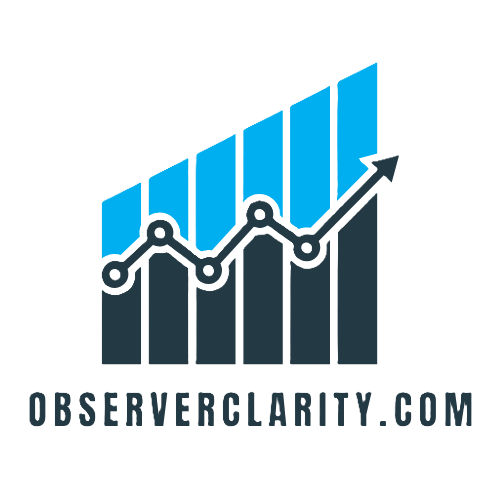In a world where procrastination often reigns supreme, goal setting books are the trusty sidekicks everyone needs. These literary gems are like having a personal trainer for your ambitions, minus the sweat and awkward gym selfies. They pack the wisdom of seasoned achievers into pages that inspire and motivate, helping readers turn dreams into achievable goals.
Goal Setting Books
Goal-setting books serve as essential resources for individuals aspiring to clarify their objectives. These books guide readers through structured processes that enhance focus and determination. Through various methodologies and techniques, they emphasize the importance of setting SMART goals—Specific, Measurable, Achievable, Relevant, and Time-bound.
Readers often find motivation in personal stories shared by successful individuals. Insights drawn from their experiences not only inspire but also provide practical strategies for overcoming obstacles. Many goal-setting books incorporate self-reflection exercises, helping individuals better understand their motivations and barriers.
Incorporating features like worksheets and planning templates encourages readers to actively engage with the material. These interactive elements make it easier to apply concepts and maintain accountability. By setting clear timelines and identifying milestones, readers can track their progress more effectively.
The variety of goal-setting books available caters to different preferences and needs. For example, some focus on career advancement while others emphasize personal development or wellness. Each genre offers unique approaches, ensuring a diverse array of tools for goal attainment.
Numerous authors, such as Brian Tracy and John C. Maxwell, have made significant contributions to this field. Their works consistently highlight the connection between setting goals and achieving success. Investing time in reading these books can lead to transformative changes in mindset and performance.
Benefits Of Reading Goal Setting Books


Reading goal-setting books provides numerous advantages, primarily fostering personal growth and improved focus.
Personal Growth
Personal development often flourishes through goal-setting literature. Readers discover strategies for identifying passions and values, which guide their ambitions. Techniques outlined in these books support the establishment of actionable objectives, enabling individuals to move beyond limiting beliefs. Exposure to stories of successful people inspires motivation and resilience, pushing readers to pursue their goals fervently. Structured exercises encourage self-reflection, helping individuals assess their current situations and envision future achievements. This process cultivates a growth mindset, leading to increased confidence and a willingness to take risks.
Improved Focus
Goal-setting books enhance concentration by teaching readers how to prioritize tasks effectively. These resources provide frameworks to break larger goals into smaller, manageable steps. Clarity emerges as individuals create actionable plans, improving daily routines. Emphasis on SMART goals helps sharpen focus, ensuring specific targets receive attention. Techniques for minimizing distractions and maintaining productivity often appear, greatly benefiting readers. Commitment to a defined plan fosters discipline and accountability, guiding individuals toward sustained progress. As a result, improved focus on key objectives translates into greater overall achievement.
Top Goal Setting Books To Consider
Several goal-setting books can significantly impact personal and professional growth. Each title presents unique insights and strategies, catering to various aspirations.
Book 1: “Goals!” by Brian Tracy
“Goals!” offers a comprehensive framework for setting and achieving objectives. Tracy emphasizes clarity and accountability throughout the goal-setting process. He guides readers on defining specific goals and developing actionable plans. Practical techniques for overcoming procrastination and boosting motivation are also discussed. Readers benefit from goal-setting templates and exercises designed to promote engagement and reflection. This book serves as a practical guide for those seeking to transform dreams into reality.
Book 2: “The 7 Habits of Highly Effective People” by Stephen R. Covey
Covey’s “The 7 Habits of Highly Effective People” integrates goal-setting with personal effectiveness principles. He outlines seven transformative habits that foster long-term success. Each habit encourages readers to prioritize their goals based on values and principles. Covey emphasizes proactivity in setting and pursuing objectives, highlighting the importance of vision in personal and professional life. Readers will find insights on balancing urgent tasks with meaningful long-term goals, enhancing overall productivity.
Book 3: “Atomic Habits” by James Clear
“Atomic Habits” delves into the influence of small, consistent changes on achieving significant goals. Clear argues that transforming habits leads to remarkable results over time. By focusing on the process rather than merely the goals, readers learn to build a solid foundation for lasting change. Practical strategies for habit formation and breaking bad habits fill the pages. This book emphasizes that tiny shifts, when compounded, result in substantial progress.
How To Choose The Right Goal Setting Book
Choosing an appropriate goal-setting book involves several considerations. Identify personal objectives first, as different books cater to unique aspirations. Evaluating specific interests helps narrow down options, focusing on career growth, personal development, or wellness.
Researching authors and their expertise provides insight into the applicability of their teachings. Popular authors like Brian Tracy and John C. Maxwell offer proven methodologies for success. Reading reviews or summaries allows potential readers to gauge what resonates most with their goal-setting needs.
Considering varying formats is important as well. Some books provide structured exercises while others focus on theory. Individuals benefit from interactive components like worksheets and planning templates that promote engagement and accountability.
Assessing the philosophy of goal-setting is essential. Many books integrate SMART goal principles to enhance clarity and focus. Some authors emphasize habits and mindset shifts as critical components for achieving success.
Exploring book length and depth ensures that it aligns with personal reading preferences. Short guides may offer quick insights, while comprehensive works deliver in-depth strategies. Knowing the desired level of detail aids in selecting the right fit.
Comparing different titles and themes helps in making a well-rounded decision. “Goals!” by Brian Tracy delivers clarity and accountability. “Atomic Habits” by James Clear outlines the significance of small, consistent changes. Every option offers unique strategies, so evaluating which resonates the most leads to better results.
Ultimately, the right goal-setting book inspires motivation, fosters self-reflection, and aligns with individual objectives. Prioritize finding a book that connects with personal values while offering practical tools to transform aspirations into achievable goals.




